About the SCPS Doctoral Intern Training Staff
Consistent with the educational mission of Auburn University, Student Counseling & Psychological Services (SCPS) and its entire professional staff are committed to the practical training of mental health professionals as they complete their academic programs and pursue professional licensure. The experiences provided at SCPS are intended to provide doctoral interns with the skills and knowledge relevant to generalist clinical practice, with specialty expertise in working with a college student population.Auburn University Student Counseling & Psychological Services (SCPS)
Doctoral Internship Program for Health Service Providers
The SCPS training program is aimed to offer generalist training with the goal of fostering personal and professional growth over the course of the year such that interns are ready to transition into the next phase of their career. Conceptual and experiential training will be provided to ensure that interns have sufficient knowledge, skills, attitudes, and values to be competent practitioners. Constructive feedback will be an important part of the internship year as a means of facilitating the greatest possible growth. An effort will be made to integrate interns as a part of the permanent staff while still respecting that interns are trainees and maintaining appropriate professional boundaries between permanent staff members and trainees.
A broad understanding of diversity will be important. It is hoped that diversity will be woven in throughout various aspects of the training experience and not limited specifically to the Diversity seminar. While there are certain training experiences that SCPS deem important to be uniform between the interns completing the program, the goal of the SCPS permanent staff is to provide space for interns to tailor their internship in certain ways such as choosing the types of groups they co-facilitate, what types of outreach events they provide, and their preferred areas of rotation each semester.
The specific training areas covered in the SCPS program are aligned with standard accreditation standards and will provide a broad range of generalist training that highlights the incorporation of science and practice within a collegial and collaborative environment.
Intern Recruitment and Selection
How to Apply
Sport Psychology Track
Required Doctoral Preparation
Stipend and Benefits
Summary of Internship Experience
Important Dates
Overview of Weekly Schedule
Individual Clinical Supervisors
About Auburn University and the Community
Internship Admissions, Support, and Initial Placement Data
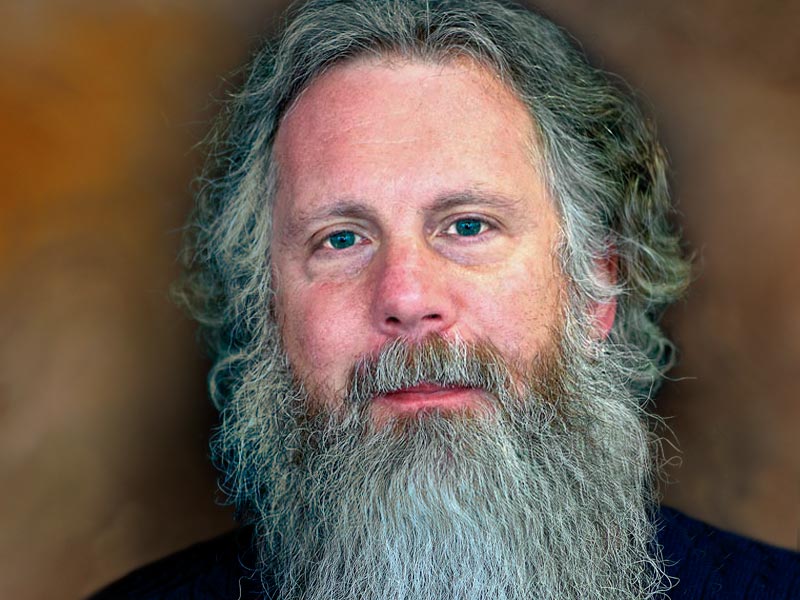
Doug Hankes
Ph.D., Executive Director
Licensed Psychologist
Doug completed his Ph.D. in Counseling Psychology from the University of North Texas in 1996. He is a licensed psychologist in Alabama and Tennessee. He holds graduate faculty status in the Department of Psychology, the Department of Kinesiology, and the Department of Special Education, Rehabilitation, and Counseling. Doug describes his therapy approach as mindfully eclectic and fosters a collaborative relationship with clients to promote change. He has been actively involved at the national level in sport and exercise psychology and has served on the Executive Boards of the American Psychological Association (APA) Division 47 Society for Sport, Exercise, and Performance Psychology and the Association for Applied Sport Psychology (AASP). Doug is Past President of Division 47. He is an AASP Fellow and CMPC Emeriti. Doug is listed on the 2020-2024 United States Olympic Committee Sport Psychology Registry and Mental Health Registry. When he’s not at work, you can find him hiking the Appalachian Trail.
Supervision Style:
My supervision style is developmental and focuses on providing the structure and guidance appropriate to the individual needs of the supervisee. My goal is to facilitate a supervisee’s development of a therapeutic identity and style that is both genuine and clinically effective. I view supervision as a collaborative process where a supervisee’s professional training, needs and goals are integrated with excellent client care. Very similar to my work with clients, we will have fun while we do hard work that brings about change.
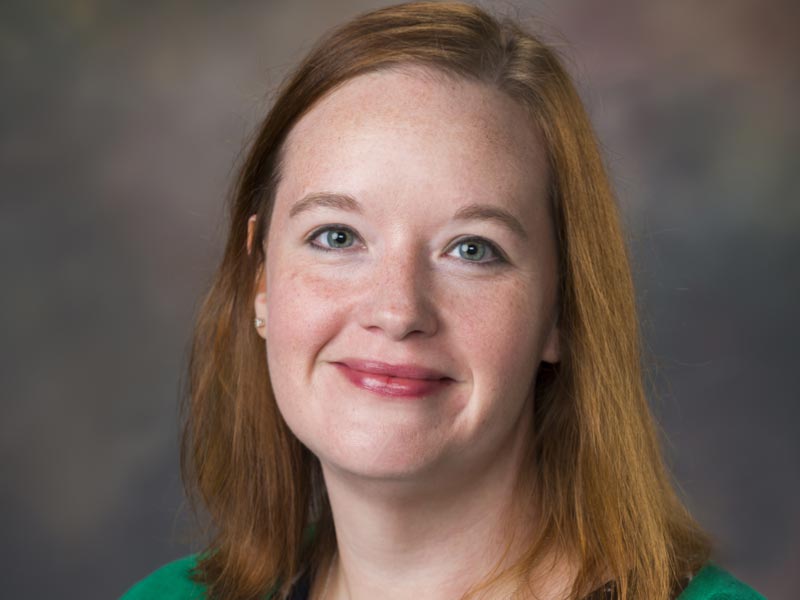
Joeleen Cooper-Bhatia
Ph.D., Associate Director, Licensed Psychologist
Joeleen is originally from northeastern Pennsylvania and completed her doctoral degree in Counseling Psychology at the University at Albany, SUNY. Prior to joining the staff at SCPS in 2008, she worked with college students in several settings, including during her internship at Virginia Tech’s Cook Counseling Center. Joeleen enjoys providing group therapy, particularly working with students in SCPS’ Understanding Self and Others groups. She is actively involved in the American Group Psychotherapy Association, where she has held a number of leadership roles, and is a Certified Group Psychotherapist. Additionally, Joeleen is passionate about supervision and training and her clinical interests include relationship concerns, trauma, family issues, and working with emotions. She uses a collaborative approach to therapy, focusing on the therapy relationship while incorporating tools to help her clients improve coping. In her time outside of work, Joeleen enjoys reading, long walks, binge-watching TV shows, and spending time with family.
Supervision Style:
My supervision style is developmental in nature, working to meet trainees where they are (e.g., providing more direct guidance to beginning trainees than trainees later in their development). I am generally non-directive as a supervisor, allowing trainees to decide what seems most appropriate to discuss in supervision. I also rely heavily on feedback about supervision to help me adapt to the needs of trainees, and I ask that my supervisees are open and honest with me about their experience of supervision. I also believe that supervision should include more than just case management; thus, I encourage supervisees to talk about issues related to their professional development, their experiences at SCS, and their reactions to their clients and clinical work
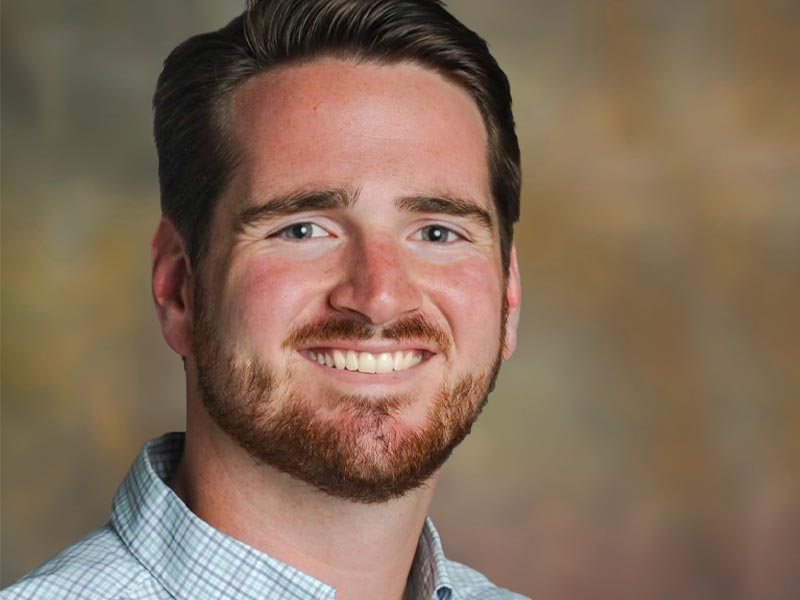
Jack Howard
Ph.D., Clinical Sport Psychologist
Licensed Psychologist
Jack completed his Ph.D. in Counseling Psychology from the University of Southern Mississippi in 2021. Jack is a licensed psychologist in Alabama and California. Prior to joining Auburn’s Counseling and Sport Psychology team, Jack completed his internship at North Carolina State University’s Counseling Center and a postdoctoral fellowship at Stanford’s School of Medicine with a specialization in Sport and Performance Psychology. Jack is actively involved with Clinical/Counseling Sport Psychology Association (CCSPA) and APA Division 47 (Society for Sport, Exercise, and Performance Psychology). He is currently working toward his Certified Mental Performance Consultant certification. Jack maintains an integrated approach to therapy, drawing primarily from cognitive-behavioral, acceptance-commitment, and relational-cultural theories. Jack works with student-athletes on the full spectrum of well-being from performance enhancement to clinical mental health concerns. When he’s not at an athletic event, Jack enjoys playing sports, spending time with family and friends, and enjoying the outdoors with his partner and little dog, Blue.
Supervision Style:
My supervision style is anchored in the integrated developmental model. I believe that a successful supervisory relationship develops over time with a focus on building a strong working alliance between supervisor and supervisee. In supervision, I enjoy drawing from many theoretical orientations (CBT, ACT, Relational-Cultural) with some additional strengths-based interventions (e.g., use of self) to meet my supervisees where they are. I strive to cerate a transparent, non-judgmental, and collaborative space to explore various successes, challenges, and developments in my supervisee’s practice and life. I also aim to take on flexible roles (teacher, guide, supporter) for supervisees as they grow their autonomy, competence, and relatedness on the journey toward independent practice and licensure.
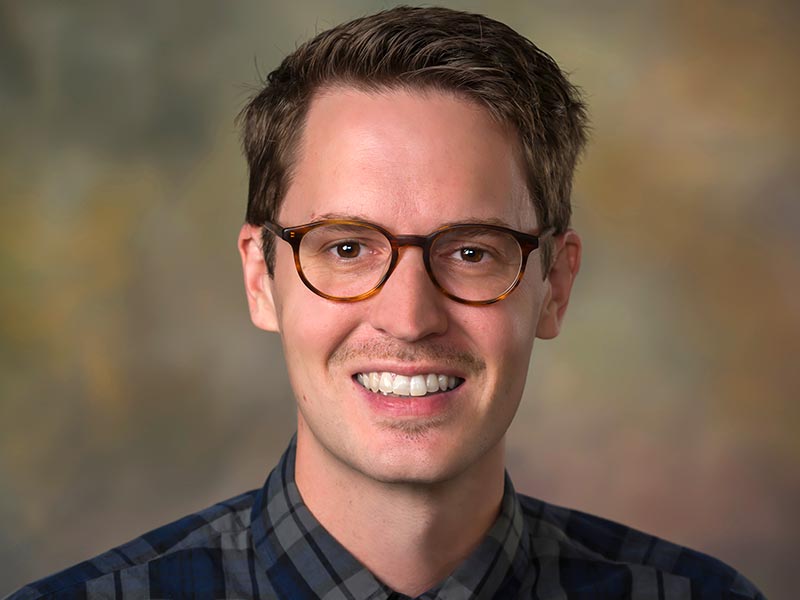
Alex Hughes
Ph.D., Assistant Director for Training, Licensed Psychologist
Alex obtained his PhD in Clinical Psychology from Fuller Theological Seminary in Pasadena, California, where he also completed a Master’s degree in Theology. He completed his internship and postdoctoral fellowship at the University of Idaho. Alex’s clinical interests include existential issues, religion/spirituality, identity development, and chronic illness. He uses an integrative approach in therapy, drawing primarily from Humanistic/Existential Therapy, Narrative Therapy, Interpersonal-Process Therapy, and Cognitive-Behavior Therapy. When work slows down, you can find him on a long walk or practicing his drawing skills.
Supervision Style:
In supervision I use the Integrative Developmental model to help best meet the needs of trainees at various stages in their development, with trainees working toward greater autonomy as they gain experience and confidence. I encourage trainees to shape supervision to their specific needs and goals, though I tend to think of supervision as encompassing clinical skills, professional development, and personal development. As I am integrative in my clinical work, I strive to help trainees be flexible in their approach to clients, but I also strive to help them gain confidence that it is the therapist’s authentic self that can be most therapeutic rather than specific interventions or orientations.
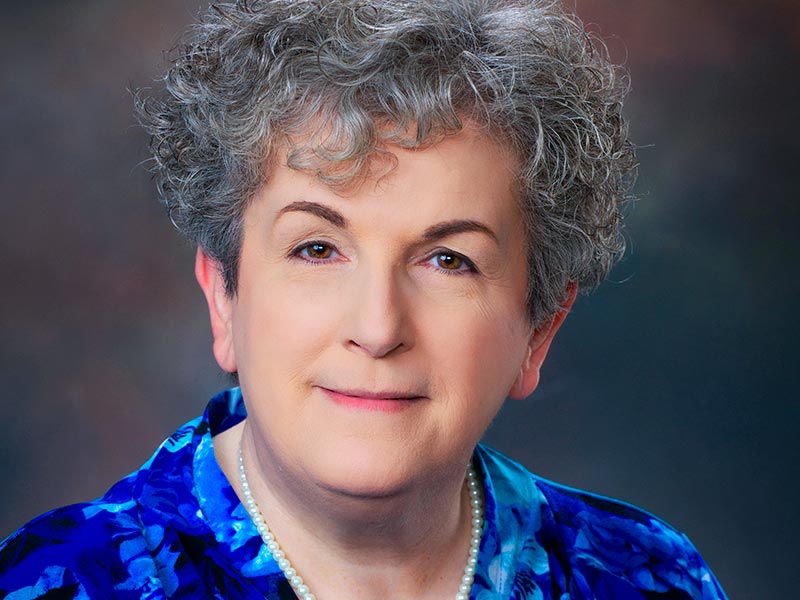
Julie Dodd
Ph.D., Licensed Psychologist
Julie earned her Ph.D. in Clinical Psychology from the University of Southern Mississippi in 1996 and has been a licensed psychologist since 2001. Her clinical experience includes work in hospital and clinic settings, providing services to the general public, veterans, and incarcerated offenders. Julie’s clinical and professional interests include treatment of depression, anxiety, substance abuse, posttraumatic stress, and helping others manage critical incidents and disaster response. Having trained as a generalist, she has experience addressing a wide variety of clinical concerns. Julie’s therapeutic approach is integrative, incorporating cognitive-behavioral, person-centered, motivational interviewing, and mindfulness perspectives. She values developing authentic, collaborative relationships with her clients, helping them tap into their own strengths while developing new coping strategies to become their best selves. Outside of work, Julie enjoys keeping up with the latest tech, researching genealogy, leading her church’s livestream team, and is excited to be a member of the Auburn Family.
Supervision Style:
My approach to supervision is very integrative/blended. It combines elements of Stoltenberg and Delworth’s (1987) developmental model with elements of Hersey and Blanchard’s (1977) Situational Leadership Model. I work collaboratively with each supervisee to identify where they are in terms of development of clinical skills and provide input to a degree consistent with their level of mastery or comfort. To the extent that the supervisee requires development of specific competencies, we establish a development plan with specific, measurable, achievable targets so we are both in tune with expectations. I strive to ensure that each supervisee will know what I expect of them and how I believe they are doing throughout their training experience. No surprises. I provide clinical supervision from an integrated theoretical perspective, drawing from CBT, DBT, motivational interviewing, client-centered, narrative, and interpersonal models in conceptualization of cases and treatment development.
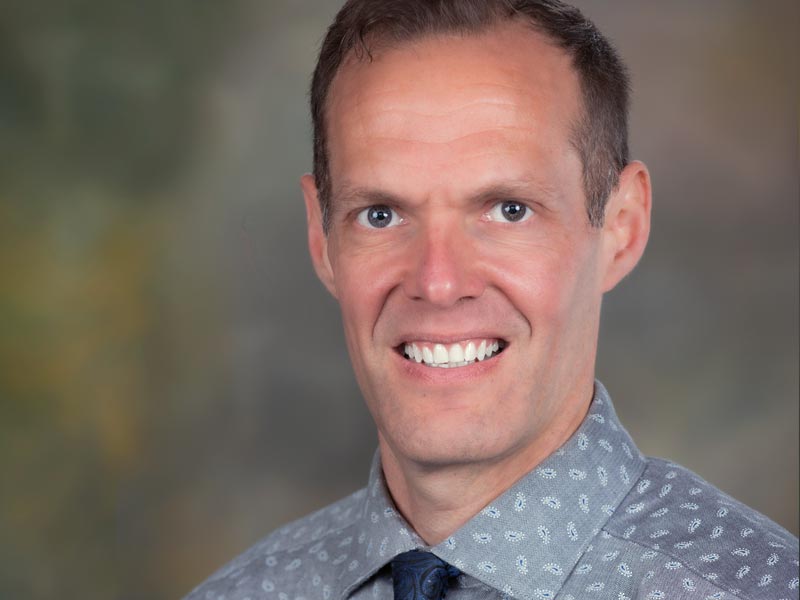
Dustin Johnson
Ph.D., Assistant Director for Outreach and Mental Health Initiatives
Licensed Psychologist
Dustin completed his doctoral degree in Counseling Psychology from the University of North Texas (UNT) in 2011. He has experience working with college students at the University of Southern Mississippi, UNT, and West Virginia University. His clinical interests include Men’s issues, alcohol and other drugs (AOD) issues, sports and academic performance enhancement, and assessment and management of learning differences (including ADHD). He is an active member of both the American Psychological Association (APA) and the Association for Applied Sport Psychology (AASP). Dustin describes his work with clients as integrative, with particular focus on creating a strong, genuine, and open working relationship through the use of humanistic, emotion-focused, interpersonal, and psychodynamic techniques. He has conducted and participated in youth sport research, focusing on the impact of coaches. In his free time, Dustin enjoys rooting for the New Orleans Saints and is an avid fan of the outdoors, particularly hiking.
Supervision Style:
Main Theoretical Framework for Supervision: Preen & Fosha (2017), Accelerated Experiential Dynamic Psychotherapy (AEDP for Supervision)
AEDP for Supervision is a healing and attachment-based form supervision designed to match the developmental needs of the supervisee. AEDP is an integrative and experiential form of psychotherapy that synthesizes attachment research, emotion theory, developmental models, trauma work, body-focused treatments, and affective neuroscience. In addition to AEDP for Supervision, I infuse humanistic, multicultural, and developmental considerations into my supervision approach. That is, I will work to create an honest, open, and non-judgmental space through which the supervisee and I can process our differences in communication, cultural background (conceptualized through a broad lens), and experience level. I hope to have honest communication about these differences and their impact on the supervisory relationship throughout the training period, consistent with the SCPS value of giving and receiving timely incremental and formative feedback.
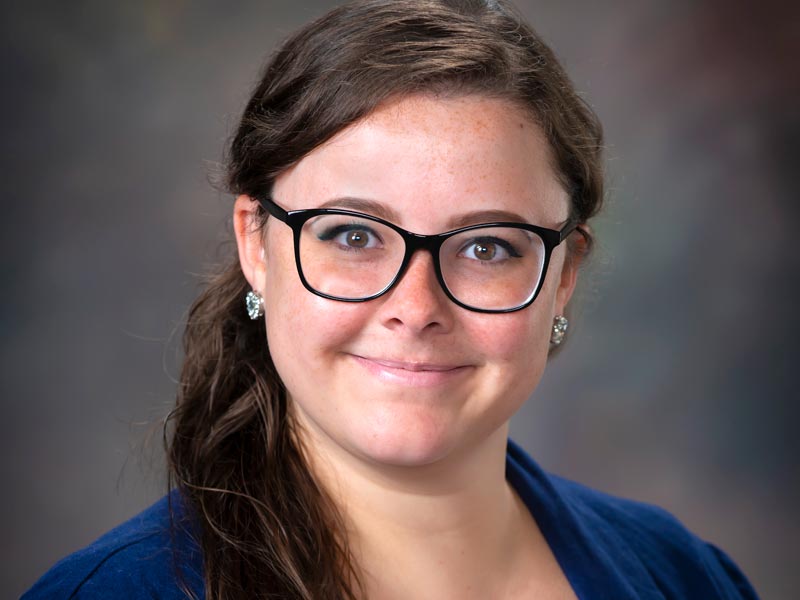
Carlie McGourty
Psy.D., Practicum Coordinator, Licensed Psychologist
Carlie recently completed her doctoral internship at Auburn SCPS and graduated from Marywood University (Scranton, Pennsylvania) with her doctoral degree in clinical psychology. Carlie is passionate about working with college students and the university community. She recognizes that college can be an exciting and difficult chapter in students’ lives. Her training is primarily in Cognitive-Behavioral Therapy, which assists her in helping clients identify unhelpful behaviors and thoughts. She encourages clients to identify their strengths and values, using these in session as an empowering bridge towards developing balanced thoughts, meaningful connections, and a deeper understanding of oneself. Carlie’s clinical interests include interpersonal relationships, sexual violence/violations, identity development, and autism spectrum disorder. Outside of work, Carlie is usually watching movies, reading the latest Colleen Hoover novel, or spending time with her cat, Tigger.
Supervision Style:
I was trained in the Integrative Developmental Model (IDM) of supervision, meaning I meet my supervisee where they are at developmentally by providing them with appropriate levels of education and autonomy based on their developmental needs. Similarly, to my therapeutic style, I consider myself to be an authentic and transparent supervisor and am committed to helping you achieve your goals and grow as a therapist. Supervision, both as a supervisee and supervisor, has always been one of my favorite aspects of training. Expect that there will be a gradual increase in autonomy and responsibility as our supervisory relationship develops. I was trained primarily in Cognitive Behavioral Therapy, and this is the foundation of my theoretical orientation, however, I incorporate interpersonal, emotion-focused, strength-based, and humanistic interventions. Therapy is the marriage of art and science and I strongly believe in the efficacy of the art of our work. Our relationships with our clients can be profoundly healing.
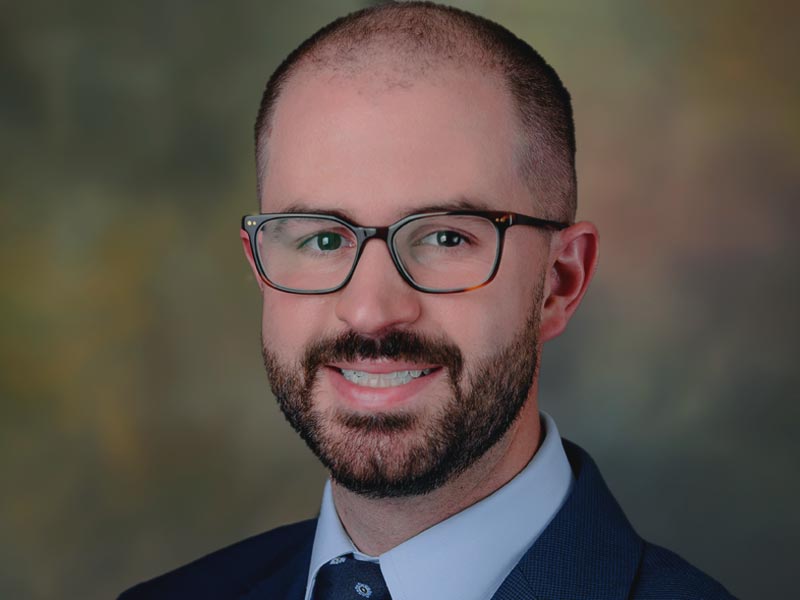
Austin Luker
M.D., Psychiatrist
Dr. Luker recently joined East Alabama Psychiatric Services, and is thrilled to be an Auburn University affiliate at the Student Counseling & Psychological Services office. Dr. Luker earned his undergraduate and medical degrees from UAB, where he also completed his general psychiatry residency and child and adolescent psychiatry fellowship. Dr. Luker is a proud native of Clay County, Alabama, and is excited to be practicing psychiatry in the East Alabama area. He has known he wanted to be a psychiatrist since he was a teenager, and has clinical interest in ADHD, depressive disorders, bipolar disorders, PTSD, and psychotic disorders. As a child and adult psychiatrist, he has an interest in development across the lifespan and feels privileged to be working with Auburn University students at this unique and exciting stage of their lives. In his spare time, Dr. Luker enjoys running, DIY projects, playing the mandolin and guitar, Auburn athletics, and spending time with his family.
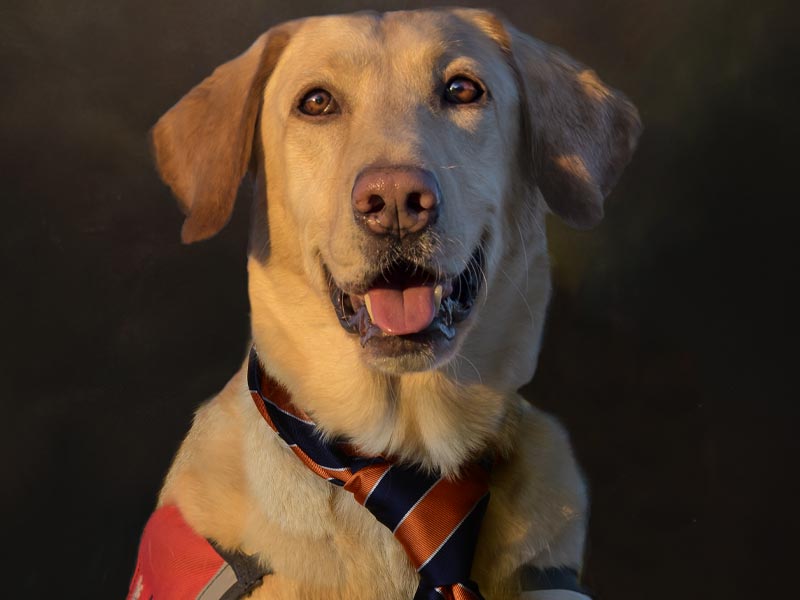
Dr. Moose
TDI Certified & CGC (AKC Canine Good Citizen)
Moose is an 15-year-old yellow Labrador Retriever. He was trained by Auburn University Canine Performance Sciences as an explosive detection dog. During his time at Canine Performance Sciences, Moose worked on a Department of Justice research project studying the effects of nutrition on olfaction detection, and on a Department of Defense project. Moose is one of the only two dogs in the world who has been shown to be able to detect a live virus. In collaboration with Student Counseling Services, Canine Performance Sciences trained him to be a therapy dog and donated him to SCS so that he can work with Auburn students. Moose has passed his AKC Canine Good Citizen test and his Therapy Dogs International evaluation and is now a registered therapy dog. At SCS, Moose works with students in individual and group counseling sessions. Additionally, Moose is involved in outreach events on campus. Moose’s therapeutic approach includes mindfulness, warmth, and acceptance without judgment.
Supervision Style:
My supervision model focuses on the power of positive reinforcement. As my supervisee, you will never hear me bark or growl. I use a loose leash approach that allows us to collaboratively walk and work together. Clicker training, wet licks, furry nuzzles, and tennis balls provide guidance and rewards in your journey toward becoming a mental health professional.
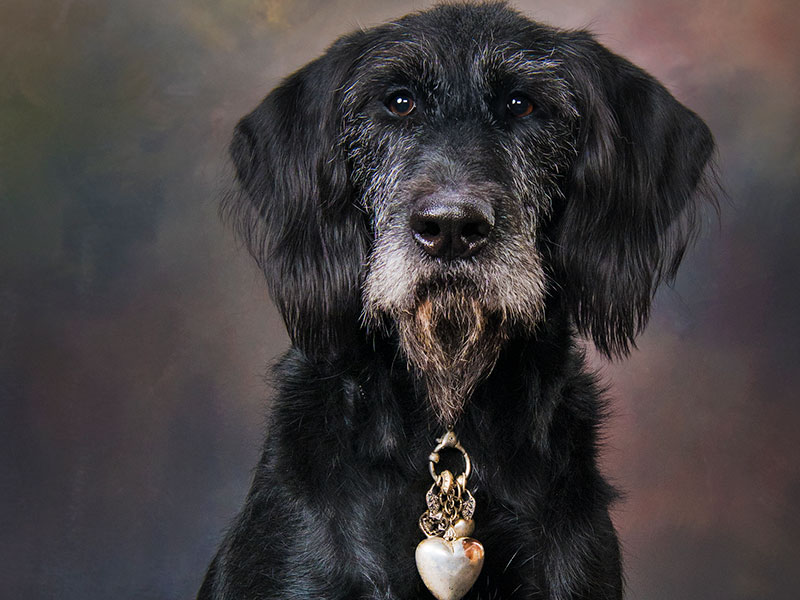
Dr. Nessie
Trained to TDI Certification and AKC Canine Good Citizen Standards
Nessie is a 8-year-old black Labrador Retriever and German Wirehaired Pointer mix. She was trained by Auburn University Canine Performance Sciences as a detection dog. During her time at Canine Performance Sciences, Nessie worked on multiple top secret research projects and was recruited to continue her work at several government agencies. Ultimately, she retired from her detection duties and started her second career as a therapy dog at Student Counseling & Psychological Services. She was trained in collaboration with Canine Performance Sciences to share her therapy skills with Auburn students. At SCPS, Nessie works alongside her brothers from different mothers, Moose and Rooster, with students in individual and group counseling sessions. In addition, Nessie is particularly skilled at outreach events on campus as she has never met a person she doesn’t love. She is truly a mental health ambassador. Nessie’s therapeutic approach includes clinical curiosity, supportive directness, and empathic tail-wagging.
Supervision Style:
I developed my supervision style under my mentor, Dr. Moose, so the power of positive reinforcement is the foundation of my work with supervisees. As my supervisee, you will never hear me bark or growl I use a loose leash approach that allows us to collaboratively run, walk, and work together. Clicker training, wet licks, gentle head butting, tennis balls, and squeaky toys provide guidance and rewards in your journey toward becoming a mental health professional. I will bring as much energy as necessary to get my supervisees to maximize their professional growth.
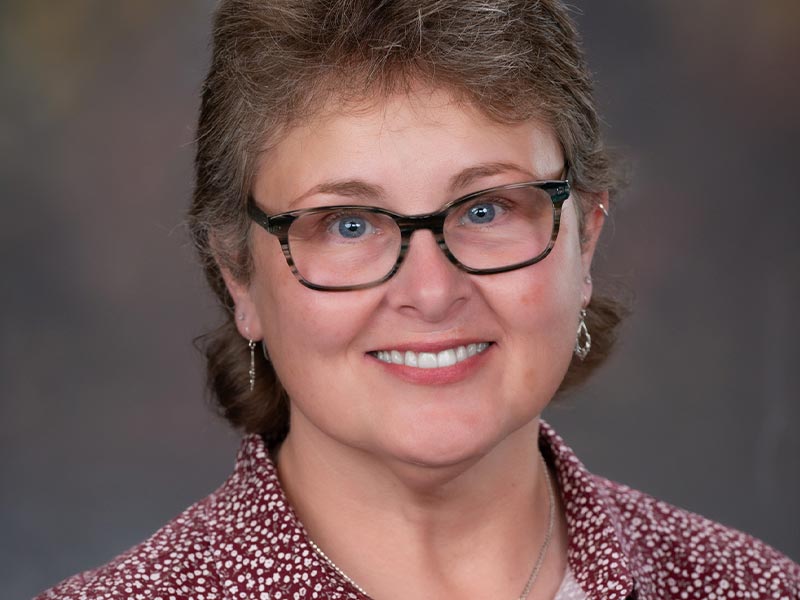
Christina Newberry
Psy.D., Licensed Psychologist
Christy is the embedded Licensed Psychologist for Auburn Vet Med, providing therapy and consultation services. She earned her doctoral degree in Clinical Psychology from the Illinois School of Professional Psychology at Argosy University, Chicago, a master’s in Clinical Psychology from Indiana University of Pennsylvania, and a master’s degree in Professional Psychology from Geneva College in Beaver Falls, PA. Christy incorporates warmth, empathy, and humor into her strengths-based, collaborative approach. Specific clinical interests include compassion fatigue, burnout, stress, anxiety, depression, suicidal ideation, and trauma. Originally from southeast Tennessee, Christy enjoys coffee shops, spending time with her sister, friends, and her sweet rescue pup, Joy.
Supervision Style:
Consistent with my approach to therapy, I incorporate a strengths-based and collaborative approach to supervision where I work to meet the unique needs of the trainee. My primary aim in supervision is to provide a supportive environment in which to learn and grow. I work to be warm, empathic, approachable, and available. I value open and honest communication and a strong supervisory relationship built on mutual respect and trust. My supervision style is based on Integrative Development Model as described by Stoltenberg, McNeill, and Delworth (2003). This model emphasizes the importance of the trainee’s developmental level and the use of skills and supervisory approaches which match the developmental level. This model of supervision allows for flexibility and enhances the growth of supervisees. I provide clinical supervision from an integrated theoretical perspective, which typically includes CBT, humanism, and interpersonal process.
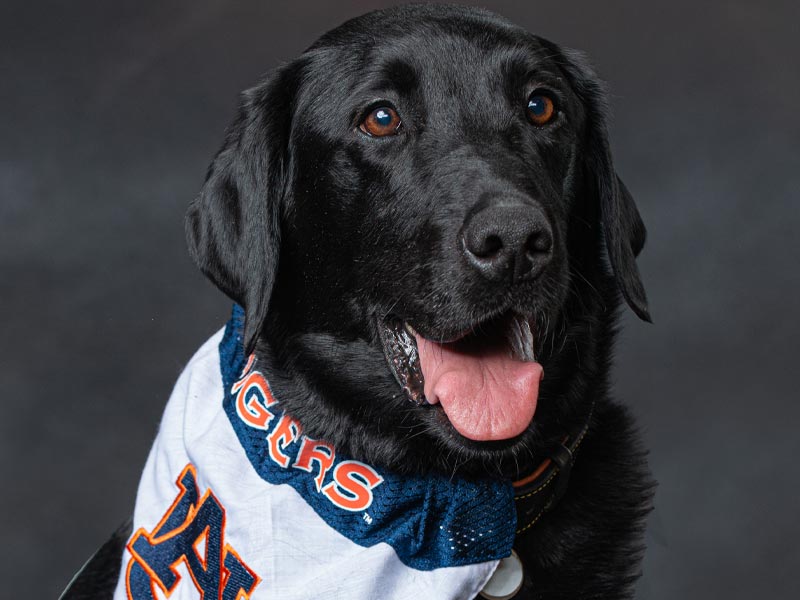
Dr. Rooster
In training to meet TDI Certification and AKC Canine Good Citizen Standards
Rooster is a 8-year-old Black Labrador Retriever. He was trained by Auburn University Canine Performance Sciences as a chemical or biological threat detection dog. During his time at Canine Performance Sciences, Rooster was trained to undergo fMRI scanning to evaluate the dog-human bond based on his interactions with his human partner and their relationship. He was one of the best dogs for the fMRI machine as he easily adapted to it and would even fall asleep in the machine! He was trained in collaboration with Canine Performance Sciences and Student Counseling & Psychological Services to share his therapy skills with Auburn students. At SCPS, Rooster works with students in individual and group counseling sessions. In addition, Rooster likes to spend time at outreach events where he can get some pets and give some tail wags to the Auburn community. Rooster’s therapeutic approach includes calming breaths, leaning into the issue at hand, and sensory exploration through belly rubs. In his free time, Rooster enjoys talking walks in the sunshine, playing with his toys, and meeting new friends.
Supervision Style:
My supervision style incorporates an all-hands-on approach and positive reinforcement. My goal is to collaboratively walk with my supervisee through the process and offer encouraging nuzzles and belly rubs along the way. I have a no bark policy and want my supervisee to come with openness and excitement to this experience just as I do. I find that mid-supervision wet licks and leaning into our time together can make for a cohesive and supportive space.
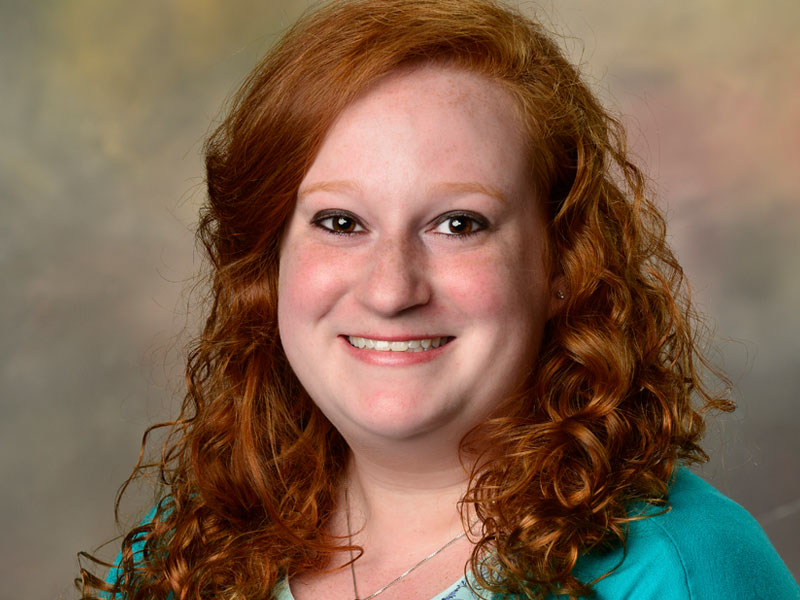
Sarah Schwartz
Psy.D., ECTT Coordinator, Licensed Psychologist
Sarah completed her Psy.D. in clinical psychology from Marywood University. She recently completed a doctoral internship at SCPS and enjoyed working with Auburn students during the past year. She has also worked with college students at Marywood University. She has worked in private practice with clients of diverse backgrounds and ages. Sarah has found that she is passionate about the college population and the unique experiences students will face. Her clinical and professional interests include body image concerns, anxiety, depression, relationship issues and emotional regulation. Sarah works from an integrative approach, utilizing interpersonal, psychodynamic, emotion-focused and cognitive-behavioral techniques. In her free time, Sarah enjoys spending time with family and friends, DIY projects, watching movies, and swimming.
Supervision Style:
I deeply enjoy the supervision process and utilize an Integrated Developmental Model for supervision. Regardless of developmental level, I take ethical and legal matters seriously. Supervisees will be expected to practice in ethical and appropriate ways. Actions or concerns that might be considered not in accordance with the APA Ethics Code will not be tolerated and will be addressed immediately. Supervisees are not expected to know everything, and mistakes are part of the process. I have an open-door policy and encourage supervisees to ask questions, consult and talk about mistakes as that is the best way to learn and grow. I conceptualize clinically through an integrated framework using interpersonal, psychodynamic, humanistic, and cognitive behavioral interventions. These approaches are also utilized in supervision to provide the supervisee with a fully integrated approach, examples of various therapeutic techniques, and the ability to become comfortable adjusting therapeutic style to fit the needs of the client. Within this, I believe that interpersonal and emotional processes are important for development and encourage supervisees to share their own emotional reactions to clients and the supervision process. Through this we can gain a deeper self-awareness, personal and professional insight, and therapeutic skill that will facilitate clinical growth.
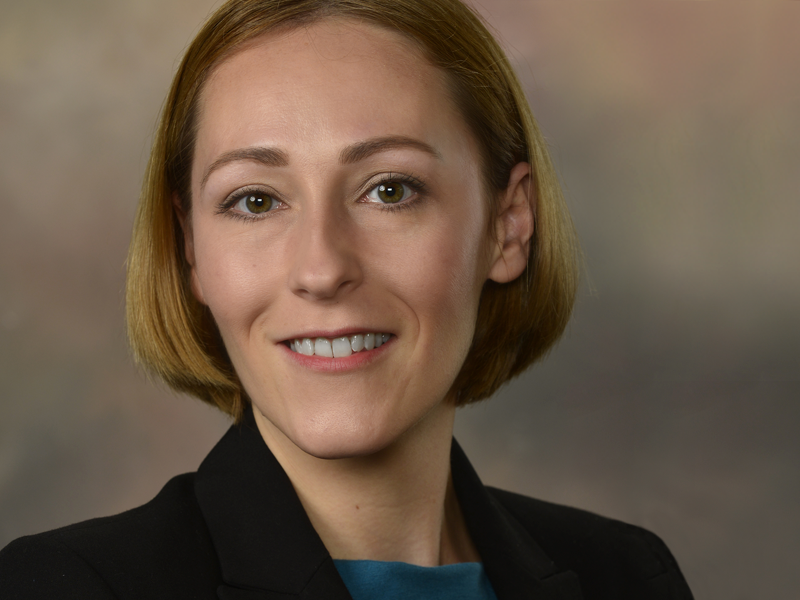
Jennifer Smith
M.D., Psychiatrist
Jen Smith is an Auburn University affiliate at the Student Counseling Services office. She joins the East Alabama Psychiatric Service team to provide psychiatric services for the Auburn University students on campus. She graduated from University of Alabama School of Medicine in Birmingham, AL in 2011 and completed psychiatry residency training at Virginia Commonwealth University Health System in Richmond, VA in 2015. She worked at a community mental health center before joining East Alabama Psychiatric Services. She was born and raised in the Auburn/Opelika area, is an Auburn football fan, and received her undergraduate degree from Auburn University in 2006. She is excited to be back at Auburn. She hopes to help students get the most out of their time at Auburn and achieve their educational goals by addressing their mental health needs.
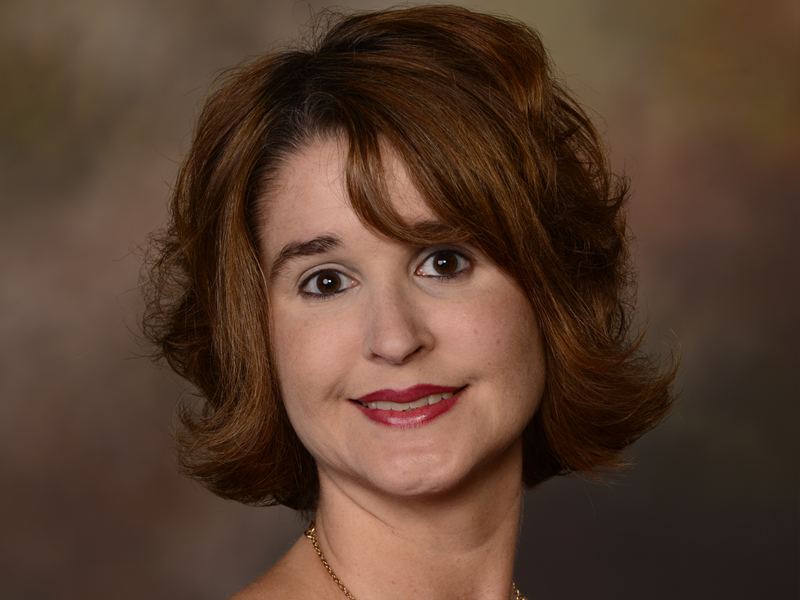
Kristee Treadwell
Ph.D., Assistant Director for Clinical Services, Licensed Psychologist
Kristee completed her Ph.D. in Counseling Psychology from West Virginia University in 2006. After completing her degree, Kristee worked as an inpatient psychologist at a community mental health center in Tallahassee, Florida for four years. Kristee joined SCS in December 2010 and was excited to return to her alma mater since she received her bachelor’s degree from Auburn University. Her clinical interests include working with survivors of trauma, anger management and other presenting concerns relative to the college student population, crisis intervention, group counseling, graduate student training and outreach and instruction within the university and larger community. Kristee approaches her clinical work from an integrative perspective as informed by cognitive- behavioral theory and techniques, interpersonal and other psychodynamic perspectives (e.g., object relations).
Supervision Style:
My supervisory approach is developmental in nature. It recognizes the various roles that a supervisor may need to assume balanced with meeting the supervisee where they are in their training background. In addition, it is supervisee-centered. There is an emphasis on collaboration involving providing education and clinical instruction from an integrated theoretical approach to counseling (including CBT, interpersonal process and inclusion of psychodynamic perspectives including object relations with consideration of multicultural factors) while supporting the supervisee’s independent thought and clinical skill development.
